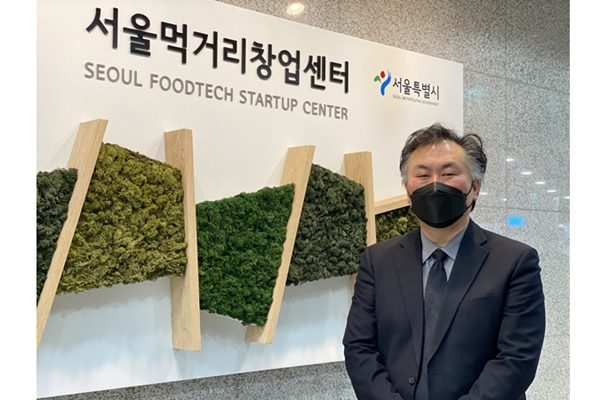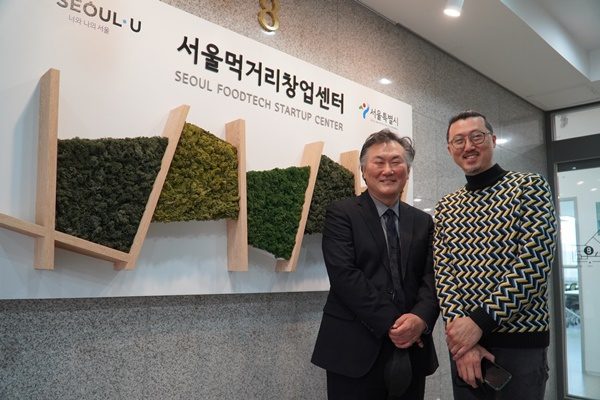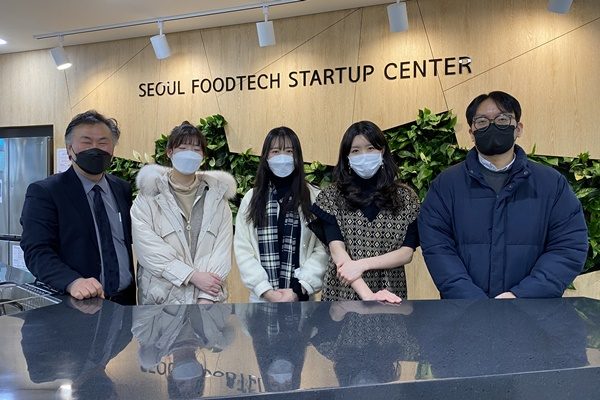(Video by AVING News)
Recently, food tech that has applied IT tothe food industry, is emerging as a core industry of the future.
According to the global research companyResearch and Markets, the global food tech market is growing 5.8% per year.Korean food tech companies are expanding their businesses by continuouslydeveloping products and services despite the unprecedented COVID crisis.
Especially in Seoul Food Tech StartupCenter, innovative ideas and new products are being developed by agri-foodrelated companies. It is supporting food processing technology, licensing,patents, design, and promotional marketing so that agricultural products can bereborn as high-value products. Not only that, it is providing practical startupsupport services such as startup education, mentoring, consulting, andinvestment connection.
Seoul Food Tech Startup Center is thecenter of Korea’s food tech located in Gangdong-gu, Seoul. Joseph Choe, thepresident of the global media channel AVING News, met the head Kim Dong-kyun tofind out what kind of services Korean food startup can get from there.
The following is the summary of theinterview between AVING News president Joseph Choe and Seoul Food Tech StartupCenter Head Kim Dong-kyun.

Q. What is the role of Seoul Food Tech Startup Center?
Seoul Food Tech Startup Center supportsstartups that can increase added value by using agricultural and fisheryproducts. It is especially focusing on fostering startups so that they canexpand their business areas not only in Korea but also globally.
Q. Which part is the center supporting in particular?
The most burdensome factor for earlystartups is cost. For startups that are having difficulties in initial funding,it is supporting various facilities like offices, meeting rooms, open kitchens,shared spaces, training rooms, media rooms, and R&D labs for free toprovide useful services to continue businesses.
Q. Investment is also a very important part of startups. What is the investment method for resident companies?
The center is home to various businessgroups, from startups in the early stages to companies that have received Pre Ainvestments. Companies are conducting businesses in a new environment based oncompetition and win-win growth. When well-known investors or VCs visit thecenter, we introduce them to outstanding resident companies so that they canexchange diverse information. Currently, we are making achievements.

Q. What is your plan in running the center in the COVID era when it is hard to meet people?
Before the COVID outbreak, we ran programsthat utilized our space by holding networking events, exhibitions and tradeshoes, and briefings. But as COVID lasted longer than we had expected, we hadto change the plan. It is hard for us, but we are working hard to createcontents and run non-face-to-face promotion events with the products andservices of the resident companies.
Q. What is the biggest picture of Seoul Food Tech Startup Center?
It is surprising and it makes me proud tosee that there are more and more innovative and creative startups being createdwith the growth of the food tech sector.
Currently, there is a high interest incompanies that deal with Korean agricultural and fishery products in both Koreaand overseas. Seoul Food Tech Startup Center aims to provide a foothold foroverseas expansion by providing various opportunities for not only residentsbut also food-related startups in Korea.

